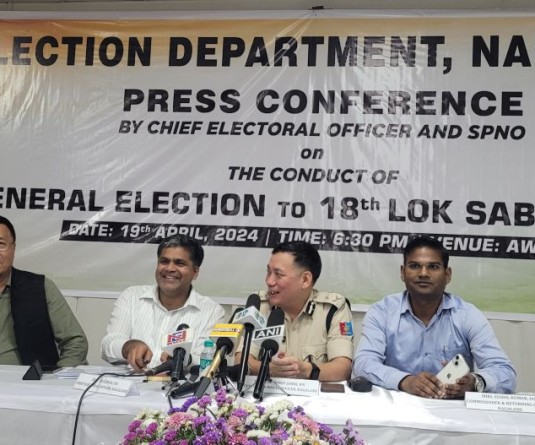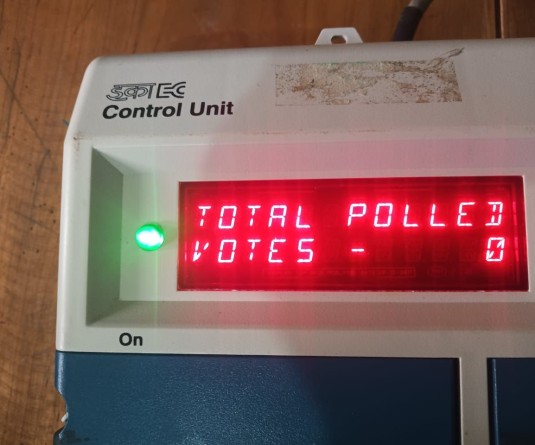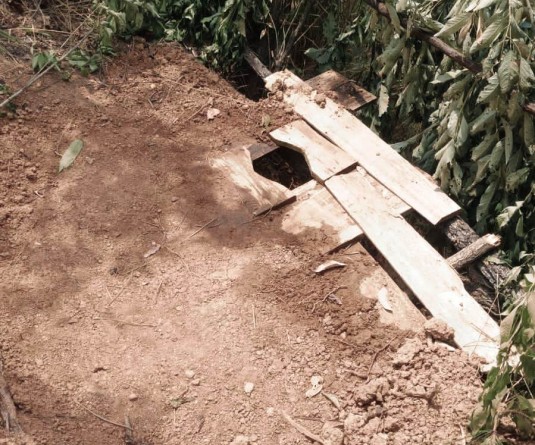
Our Correspondent
Kohima | October 5
Dr. Prosenjit Majumdar, Social Welfare Officer, AYJNIHH, ERC, Kolkata today said the population of differently abled persons in Nagaland stands at 29,631 out of 26.81 million populations of PwDs in India. He said that 5.17 % of PwDs had a disability certificate in Nagaland and only 78,449 differently abled students are enrolled in universities (HRD 2014-15).
He also stated that a report of the Sarva Shiksha Abhiyan in Nagaland revealed a total of 3,672 differently abled children, in which 2,904 children (79.08%) were going to regular schools and 409 (10.97%) children were going to special schools. Only 35% of the schools were made barrier-free and 41.5% children received appliances, he informed while speaking at the one day orientation training programme on ‘Rehabilitation of Persons with Disabilities’ under the aegis of Ali Javar Jung National Institute for Speech & Hearing Disabilities (Divyangjan), Mumbai, (DEPwD, Ministry of Social Justice & Environment, Govt of India) in collaboration with Department of English, Nagaland University, Kohima Campus.
He also highlighted the government schemes, which included: aids and appliances to PwDs, inclusive education, national scholarship, and reservation in government employment, bus concession, concession in railways and air travel and economic assistance for self employment.
Referring to inclusive education, as per the scheme, he stated that no children should be denied school admission on the basis of being differently abled. There needs to be 3% reservation in all government/aided educational institutions and free education till the child attains the age of 18.
On National scholarships, he informed that 2500 scholarships are awarded for degree and post graduate level, professional and technical course from recognized institutions in India, 30% scholarship is reserved for differently abled girls, allowance is paid for 10 months, Rs. 2500 per month for professional graduate courses and Rs. 3000 per month for professional graduate courses in one academic year.
With regard to bus concessions in Nagaland, free travel pass is available for persons with visual impairment and their escorts in the state.
Dr. Majumdar also said that differently abled persons are eligible to get financial assistance for self employment from public sector Banks, National Handicapped Finance Development Corporation, state welfare department etc.
On making universities barrier free for PwDs, he said there is a Scheme for Implementation of Persons with Disabilities Act (SIPDA), which provide financial assistance for barrier free environment in important buildings, including state and central university, provision for ramps, rails, lifts, adaptation of toilets for wheel chair users, brail signage, auditory signals, tactile flooring etc and to make university website accessible to all. One can contact the Department of Empowerment of Persons with Disabilities, MSJ & E or visit www.disabilityaffairs.gov.in for more information.
On role of universities, he said there is a need for effective implementation of PwDs Act 1995, ensuring accessibility in universities (under accessible India campaign), RCI courses in Nagaland to train more professionals and research studies on disability issues by universities, research institutes etc.
He also called for a complete approach, also taking into consideration the parents’ socio-economic status before deciding the means of rehabilitation of a differently abled child.
“Parents must be encouraged to make final decision. This means that the parents must be told about the pros and cons of each rehabilitative approach,” he added.





